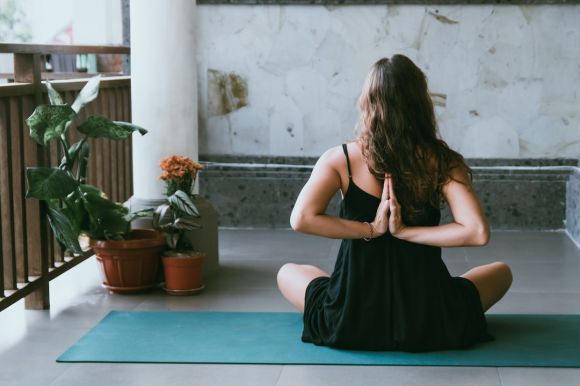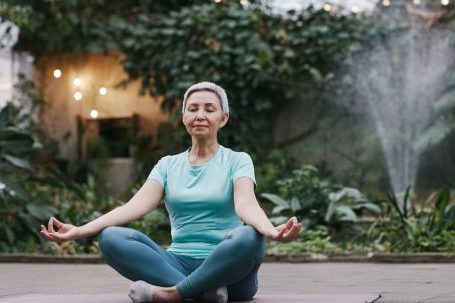In today’s fast-paced world, many people struggle to get a good night’s sleep. Stress, anxiety, and a constant stream of thoughts can often keep us awake, tossing and turning. However, there are simple and effective ways to improve your sleep quality. Yoga and meditation, when practiced regularly, can help you relax, calm your mind, and achieve a more restful sleep. In this article, we will explore how these ancient practices can be integrated into your daily routine to promote better sleep.
Reducing Stress with Yoga
Stress is one of the main culprits behind sleepless nights. The physical and mental tension we accumulate throughout the day can make it challenging to unwind and fall asleep. Yoga, with its focus on deep breathing and gentle stretching, can be incredibly effective in reducing stress levels.
Start with simple yoga poses that target areas of tension in your body. The child’s pose, for example, gently stretches the back and shoulders, releasing tension and promoting relaxation. Combine this with slow and mindful breathing, focusing on each inhale and exhale, to further calm your nervous system.
Another beneficial pose for stress relief is the legs-up-the-wall pose. Lie on your back with your legs resting vertically against a wall. This pose helps to reverse the blood flow and activate the relaxation response in your body. Stay in this position for a few minutes and allow your mind to let go of any worries or distractions.
Calming the Mind with Meditation
A busy mind can be a major obstacle to falling asleep. Racing thoughts and constant mental chatter can keep us awake for hours. Meditation is a powerful tool that can help quiet the mind, promoting a state of calm and relaxation.
Start by finding a quiet and comfortable space where you can sit or lie down. Close your eyes and bring your attention to your breath. Focus on the sensation of each inhale and exhale, letting go of any thoughts that arise. If your mind starts to wander, gently bring your attention back to your breath. Practice this for a few minutes each day, gradually increasing the duration as you become more comfortable.
Body Scan Meditation is another effective technique for promoting relaxation and better sleep. Lie down in a comfortable position and bring your attention to different parts of your body, starting from your toes and moving up to your head. Notice any areas of tension or discomfort and consciously relax those muscles. This practice helps to release physical tension and brings a sense of calm to the entire body.
Creating a Bedtime Routine
In addition to incorporating yoga and meditation into your daily routine, establishing a bedtime routine can significantly improve your sleep quality. Create a calming atmosphere in your bedroom by dimming the lights, playing soothing music, or using essential oils known for their relaxation properties, such as lavender.
Avoid using electronic devices at least an hour before bed, as the blue light emitted from screens can interfere with your sleep-wake cycle. Instead, engage in activities that promote relaxation, such as reading a book, taking a warm bath, or practicing gentle stretches.
Conclusion: Embrace the Power of Yoga and Meditation for a Good Night’s Sleep
By incorporating yoga and meditation into your daily routine and creating a bedtime ritual, you can enhance your sleep quality and wake up feeling refreshed and rejuvenated. These practices not only help to reduce stress and calm the mind but also promote overall well-being. So, take a deep breath, roll out your yoga mat, and let the power of yoga and meditation guide you to a peaceful night’s sleep.





